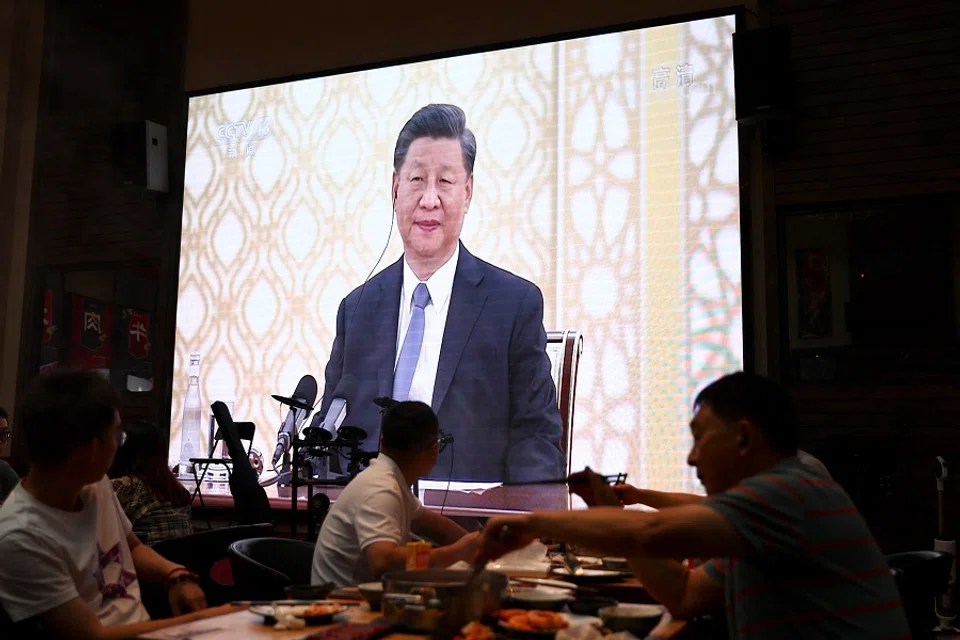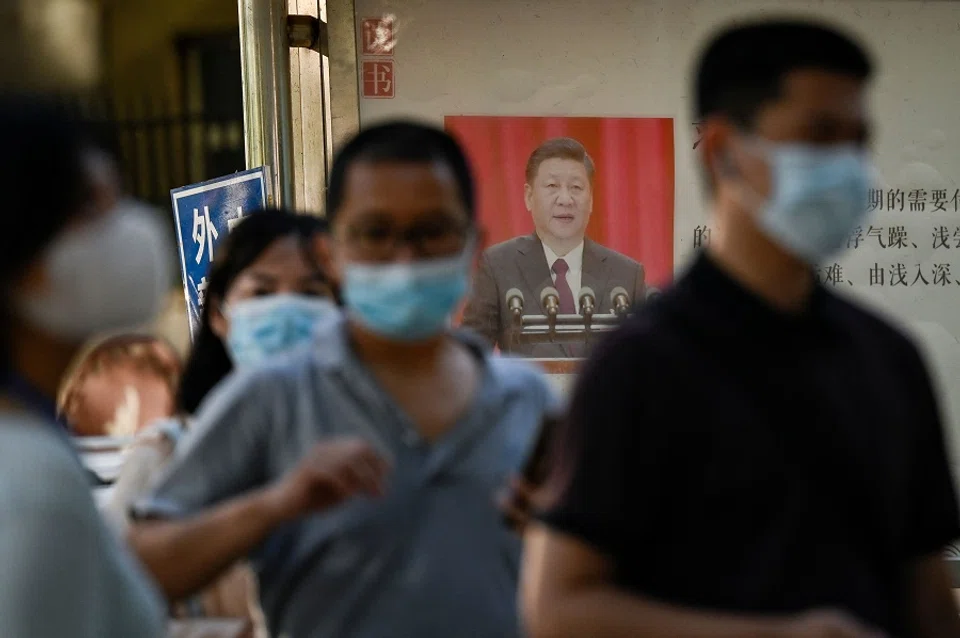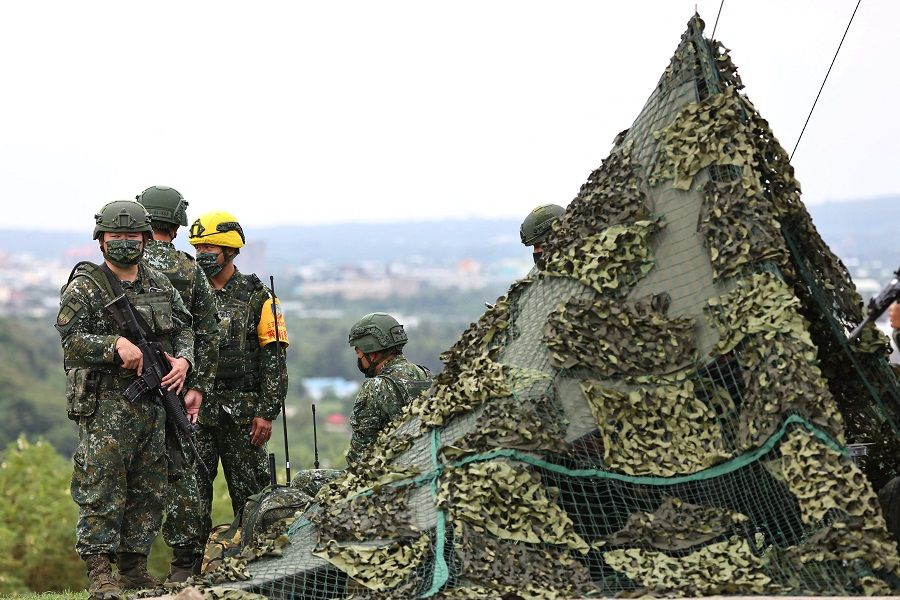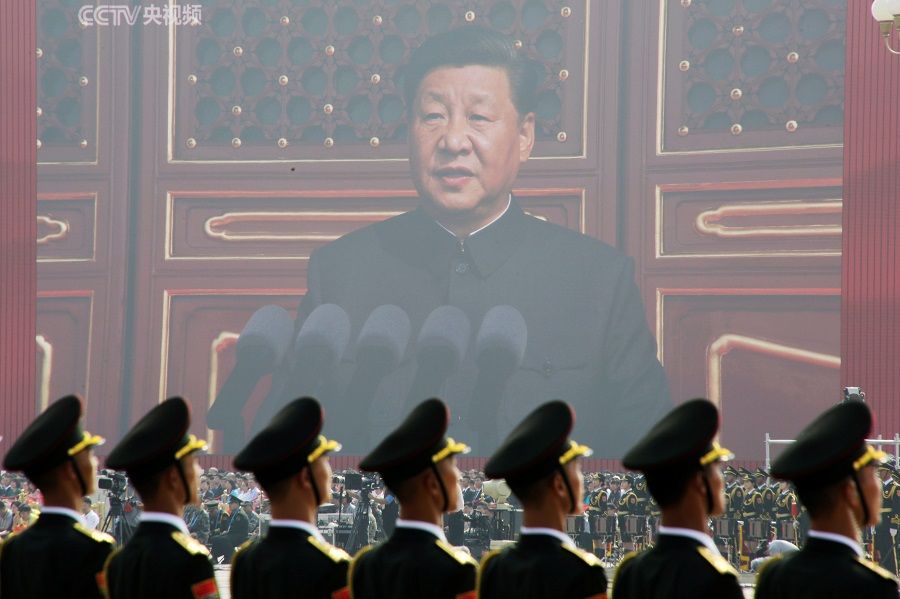[Party and the man] Xi Jinping faces biggest challenges in decades

On 16 October, the Chinese Community Party (CCP) will begin its 20th Party Congress in which the members of the all-powerful Politburo Standing Committee will be chosen. President Xi Jinping is widely expected to be appointed for an unprecedented third term as general secretary of the CCP and chairman of the Central Military Commission.
Several observers have argued that President Xi is the most powerful Chinese leader since Mao Zedong. In March 2018, the Chinese constitution was changed, removing term limits for the presidency. This, at least in theory, paves the way for Xi Jinping to be general secretary and head of state for life, just like Chairman Mao Zedong.
President Xi fought very hard to consolidate his power, launching numerous purges that affected all aspects of Chinese society. While President Xi may be the strongest Chinese leader since Mao Zedong, his unprecedented third term is likely to be his most difficult one and put his leadership skills to the test. As the saying goes, "Be careful what you wish for."
Contrary to what many in the West think, most Chinese are willing to accept in exchange for stability and prosperity.
A potentially challenging third term
For starters, President Xi will begin his third term leading a country facing serious economic, social and political problems. China today faces the biggest challenges to its stability and prosperity since June 1989 and the turmoil of Tiananmen. With Marxism-Leninism completely discredited, the CCP relied on economic growth and nationalism as the main sources of its legitimacy. It achieved undeniable success in economic reforms lifting nearly 800 million people out of poverty in a mere four decades, and transforming a backward nation with famines into a modern global superpower. This success came at the expense of restrictions on civil liberties.
Contrary to what many in the West think, most Chinese are willing to accept in exchange for stability and prosperity. The fact of the matter is that since the 18th century, China has not been as wealthy and powerful as it is today. For that, due credit must be given to the CCP and the hardworking Chinese people.

However, in recent years due to a combination of factors such as the Covid-19 pandemic, the trade war with the US and frictions with the EU, a property market crisis, and natural disasters such as drought and massive power shortages, the Chinese economy is struggling. For decades, China had relied on foreign direct investment and exports to sustain its stellar economic growth.
The trade war with the US and the increase in tariffs by several EU countries have had a significant impact on Chinese exports that cannot be easily replaced by domestic consumption or alternative markets. A clampdown on private companies both local and foreign by the Chinese government has severely affected investor confidence in the country and weakened the private sector.
For decades, economic growth has been one of the main pillars of CCP legitimacy. This pillar is currently under severe strain.
China's insistence on a zero-Covid policy has led to lockdowns in major cities such as Shanghai, Shenzhen and Chengdu, further exacerbating the economic situation. The World Health Organization and many others have questioned the wisdom of a zero-Covid policy which has led to rare protests in several Chinese cities. The war in Ukraine and its global impact has complicated matters even further. For decades, economic growth has been one of the main pillars of CCP legitimacy. This pillar is currently under severe strain.
Domestically, China faces severe security challenges that have international repercussions. In August, the United Nations (UN) released a damning report condemning Chinese policies in Xinjiang and stating that China may have committed "crimes against humanity". China has often been accused of human rights violations such as over its policies on Hong Kong. However, this is the first time an assessment of such a nature of possible "crimes against humanity" are levelled at China by the UN.
From India to Indonesia, or Japan to Australia, Beijing has very few friends. Furthermore, China's actions in the South China Sea have led many Southeast Asian nations that were once neutral to grow closer to the US.
Increasingly isolated abroad
Internationally, China has not been so isolated since the days of the Cultural Revolution when it had to face both the US and the Soviet Union. Nearly all the countries that surround China are either US allies or have tense relations with China. From India to Indonesia, or Japan to Australia, Beijing has very few friends. Furthermore, China's actions in the South China Sea have led many Southeast Asian nations that were once neutral to grow closer to the US. Chinese assertiveness has in fact reinvigorated the US alliance system in Asia.

Moreover, China's combative posture toward Taiwan has so far failed to achieve any settlement with the self-governing island. In early September, the US government approved a US$1.1 billion arms sale package to Taiwan, the largest that has been approved under the Biden administration. Earlier in August, US House Speaker Nancy Pelosi became the most senior US official to visit the island in decades. Rather than isolating Taiwan, Chinese assertiveness has given her more diplomatic space and paved the way for weapons sales.
China's economic slowdown is affecting the amount of foreign aid it can provide to the developing world and the level of influence and prestige that it enjoys. This comes at a time when the West has launched several funding initiatives for infrastructure development in the developing world such as the EU's Global Gateway, a US$341 billion fund and the G7's Build Back Better World (B3W), now Partnership for Global Infrastructure and Investment (PGII).
Holding on to power
President Xi's rapid and unprecedented consolidation of power has from the very beginning of his first term in 2012 created tensions and opposition within the CCP, with plots by senior officials to overthrow him being reported. Through a series of purges and reshuffles of the People's Liberation Army (PLA), the intelligence services and the police, Xi has been able to retain a firm grip on power. However, amid the difficult domestic and international situation, one can expect opposition and tensions to resurface.
Whether President Xi's policies are at least partially responsible for this situation is a matter of debate. In any case, many Chinese believe that in hard times, a strong leader is needed.

Certain factions within the CCP blame President Xi's policies for the deteriorating economic and social conditions in China. In particular, many believe that his foreign policy has been unnecessarily confrontational which led to the reinvigoration of US alliances in Asia and the isolation of China. Critics argue that President Xi should have not abandoned Deng Xiaoping's dictum to "buy your time and keep a low profile".
On the other hand, President Xi's combative posture on Taiwan and the South China Sea, as well as facing off with the US in the trade war has gained him much support among nationalist elements, particularly in the military and the general population at large. Many average Chinese believe that China is under siege from within and from outside forces. Whether President Xi's policies are at least partially responsible for this situation is a matter of debate. In any case, many Chinese believe that in hard times, a strong leader is needed. Nationalism, the second pillar of the CCP's legitimacy, seems to be firm. However, President Xi will need to stabilise the economy to ensure the stability of his third term.
While President Xi may be the most powerful Chinese leader since Mao, he is also the one that faces the biggest challenges in decades. Only time will tell if the emperor will be able to maintain the Mandate of Heaven, so to speak. One thing is certain: Xi Jinping has achieved much that many before him have failed to do. While serving as a diplomat in Beijing, the author had the opportunity to meet President Xi. He was friendly and sophisticated, but what especially caught attention were his eyes: they showed firm determination.
Related: [Future of China] Xi Jinping and the world: Retrospect and prospect | Overseas culprits triggered Tiananmen incident; China will advance under Xi Jinping Thought: CPC's third historical resolution | Is Xi Jinping really going back to Maoism? | The Taiwan Strait crisis has strengthened Xi Jinping's position | Uniting China under Xi Jinping to build a modern socialist country: CPC to pass new 'historical resolution' at sixth plenum
